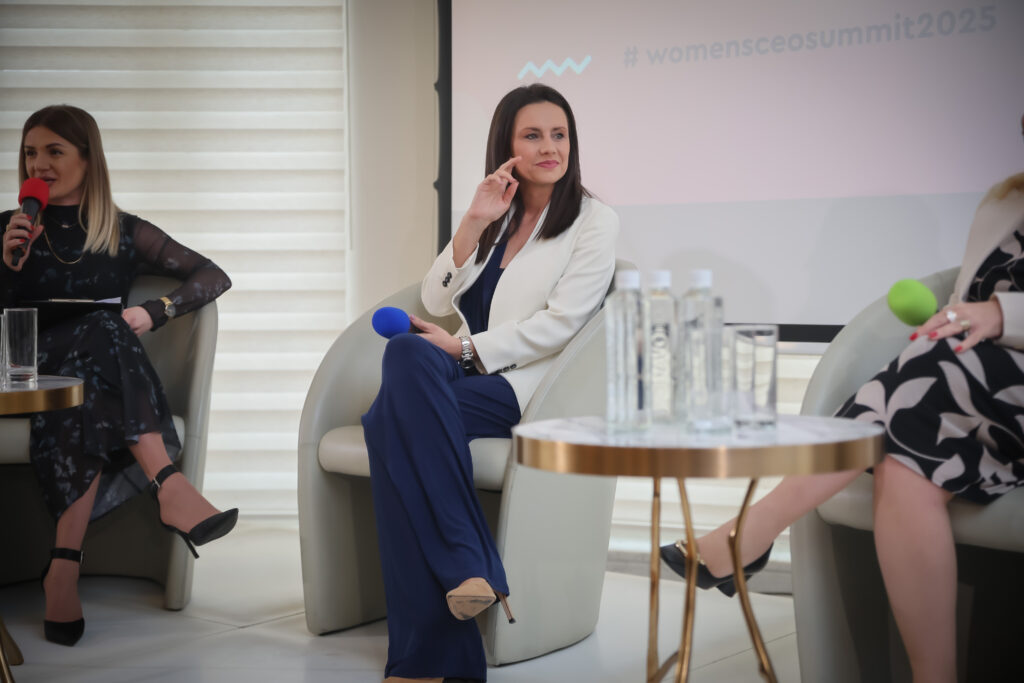Transforming Corporate Culture Through Gender Equality and Social Responsibility
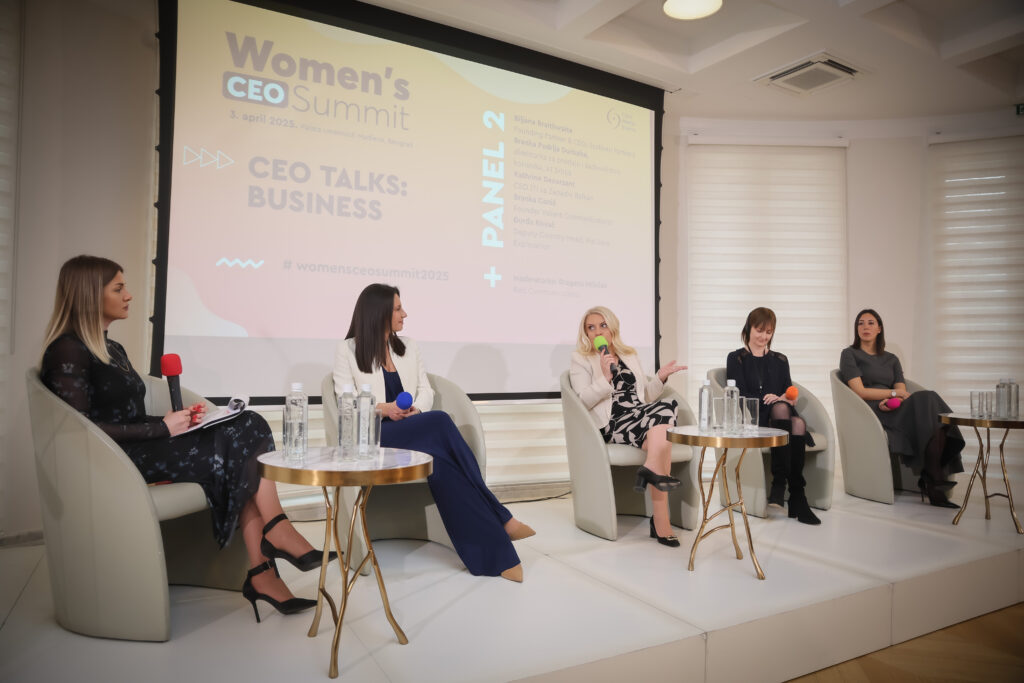 CEO Talks: BUSINESS was the second panel of the Women’s CEO Summit, featuring Branka Pudrlja Durbaba, Chief Sales and Customer Satisfaction Officer, A1 Serbia; Kathrine Decorzant, CEO of JTI for the Western Balkans; Branka Conić, founder of Valiant Communications and the first private museum in Serbia, Dom Jevrem Grujica; and Đurđa Kovač, Deputy Country Head, Rio Sava Exploration, moderated by Dragana Milačak, Red Communications.
CEO Talks: BUSINESS was the second panel of the Women’s CEO Summit, featuring Branka Pudrlja Durbaba, Chief Sales and Customer Satisfaction Officer, A1 Serbia; Kathrine Decorzant, CEO of JTI for the Western Balkans; Branka Conić, founder of Valiant Communications and the first private museum in Serbia, Dom Jevrem Grujica; and Đurđa Kovač, Deputy Country Head, Rio Sava Exploration, moderated by Dragana Milačak, Red Communications.
The panel discussed different approaches of companies towards gender equality and corporate social responsibility, which contribute to the further improvement of women’s representation in the business sector.
Speaking on this topic, Branka Pudrlja Durbaba emphasized that “at A1 Serbia, women make up 64% of employees and more than 60% of management, and the title of the most gender-sensitive company in 2024 confirms that equality and empowerment are not just the values we promote – they are the principles by which we work. We provide our colleagues with flexible working hours, work outside the office, additional vacation days and numerous other benefits, but more importantly – understanding and support in everything they do. We believe that work-life balance is not a compromise, but a prerequisite for sustainable leadership. And leadership, for me, means the responsibility to change things – by personal example, concrete measures and true commitment”.
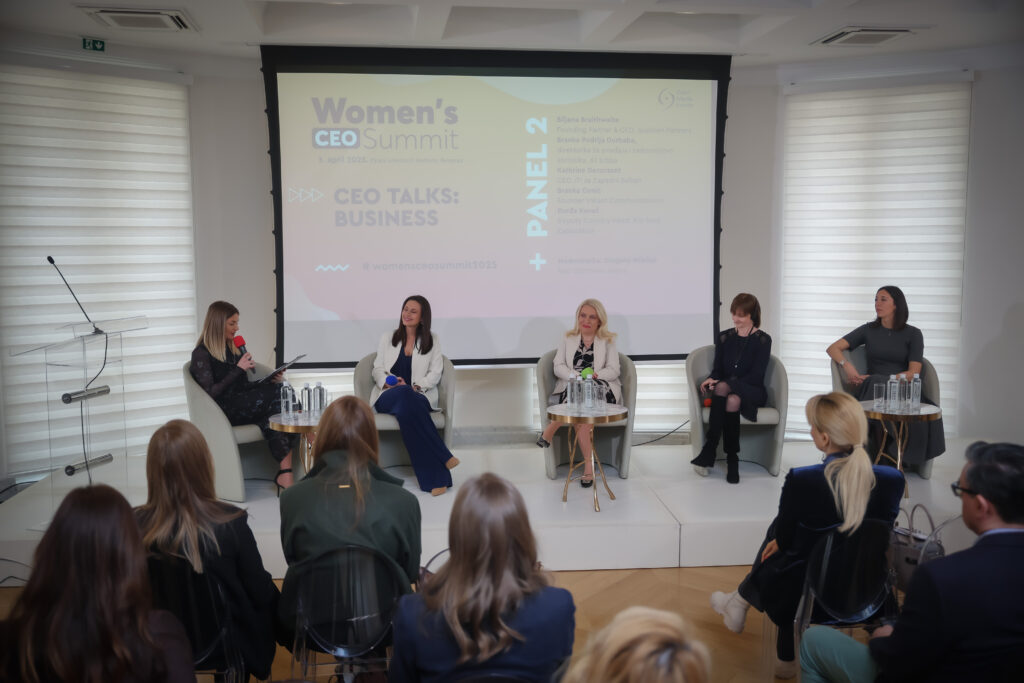 Kathrine Decorzant, CEO of JTI for the Western Balkans, followed up with similar examples from their company: “Within our company, of course, there is also the option of working from home, but also health insurance for the entire family of the employee. Maternity leave with us lasts 20 weeks. In addition, as many as a third of the women who work with us managed to get a promotion in just one year.”
Kathrine Decorzant, CEO of JTI for the Western Balkans, followed up with similar examples from their company: “Within our company, of course, there is also the option of working from home, but also health insurance for the entire family of the employee. Maternity leave with us lasts 20 weeks. In addition, as many as a third of the women who work with us managed to get a promotion in just one year.”
We provide our colleagues with flexible working hours, work outside the office, additional vacation days and numerous other benefits, but more importantly – understanding and support in everything they do – Branka Pudrlja Durbaba
“In our company, there is no difference between the culture of women and men. Although it is often assumed in the industry where I work that the prototype of an employee is a male engineer, not a woman, I see that in the last few years we have seen substantial progress, and not just declarative progress on paper,” said Đurđa Kovač, Deputy Country Head, Rio Sava Exploration.
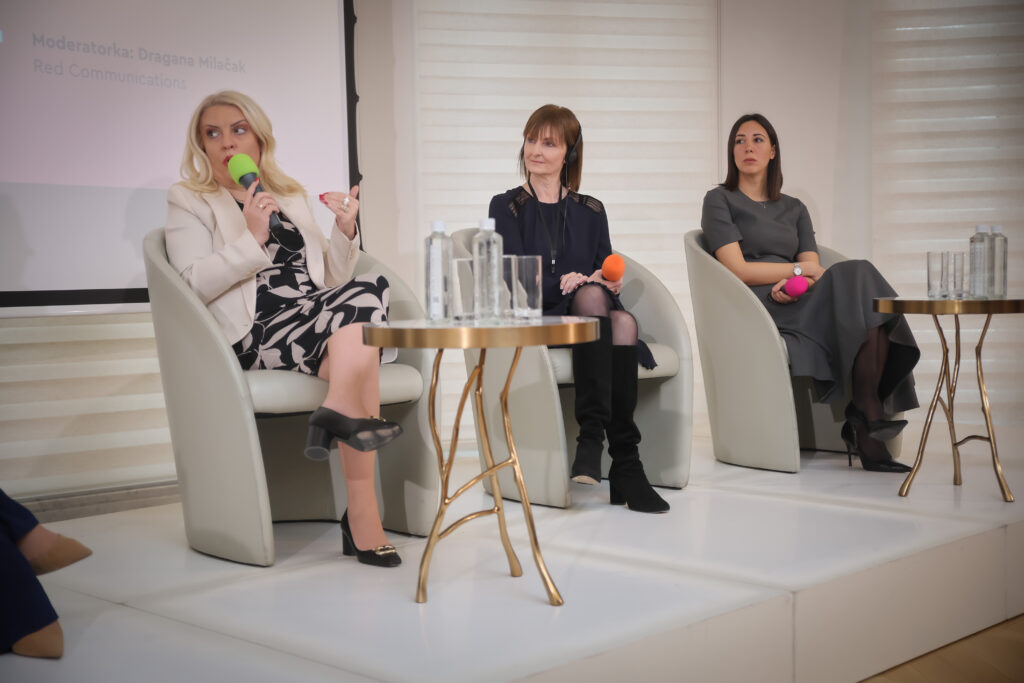 The panel discussion highlighted the transformative impact of gender equality and corporate social responsibility in fostering women’s empowerment and professional advancement. Branka Pudrlja Durbaba emphasized A1 Serbia’s exceptional commitment to these principles, showcasing a workplace where women comprise the majority of employees and management, and are supported through flexible work arrangements and comprehensive benefits that prioritize work-life balance. Her stance that leadership entails responsibility and actionable change resonated strongly.
The panel discussion highlighted the transformative impact of gender equality and corporate social responsibility in fostering women’s empowerment and professional advancement. Branka Pudrlja Durbaba emphasized A1 Serbia’s exceptional commitment to these principles, showcasing a workplace where women comprise the majority of employees and management, and are supported through flexible work arrangements and comprehensive benefits that prioritize work-life balance. Her stance that leadership entails responsibility and actionable change resonated strongly.
Kathrine Decorzant provided compelling insights from JTI for the Western Balkans, illustrating how initiatives such as extended maternity leave, family health insurance, and rapid career progression have created a nurturing environment for female employees. Meanwhile, Đurđa Kovač from Rio Sava Exploration keeps dismantling gender stereotypes within male-dominated industries, noting the substantive progress achieved in fostering inclusion beyond token declarations.
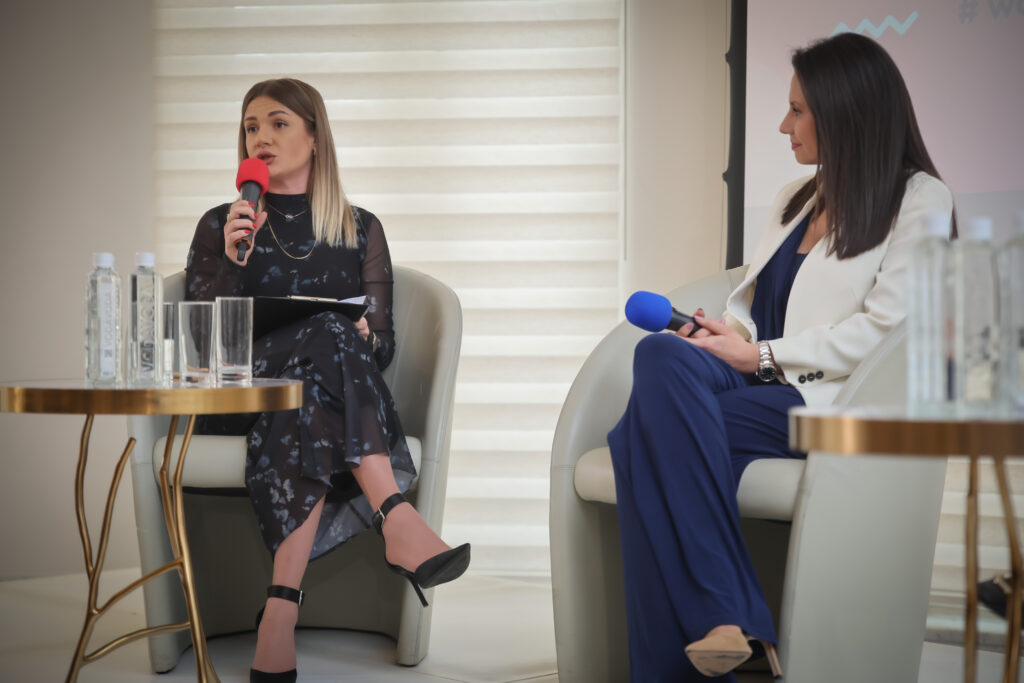 Collectively, the panelists demonstrated that cultivating cultures of equality and support is not only beneficial for women but is also integral to building resilient and innovative organizations. Their practices serve as a blueprint for embedding equality into corporate DNA, proving that empowerment is more than a policy—it’s a catalyst for lasting transformation across industries.
Collectively, the panelists demonstrated that cultivating cultures of equality and support is not only beneficial for women but is also integral to building resilient and innovative organizations. Their practices serve as a blueprint for embedding equality into corporate DNA, proving that empowerment is more than a policy—it’s a catalyst for lasting transformation across industries.
The panel discussion reveals a broader implication for companies aiming to lead in today’s evolving business landscape: gender equality and corporate responsibility are no longer optional—they are essential for innovation, employee retention, and organizational growth. The examples presented highlight that meaningful change stems from integrating these values into the company ethos rather than treating them as checkbox exercises. Firms that excel in these areas tend to attract top talent, as employees increasingly value workplaces that recognize and actively support their needs both professionally and personally.
From the comments shared, companies can learn that a proactive approach to addressing gender disparities yields measurable results. By fostering an environment of inclusion and support, businesses not only empower women but also cultivate teams that are more collaborative and dynamic. This can manifest in heightened employee satisfaction, improved productivity, and enhanced public perception, positioning these companies as industry leaders.
Although it is often assumed in the industry where I work that the prototype of an employee is a male engineer, not a woman, I see that in the last few years we have seen substantial progress, and not just declarative progress on paper – Djurdja Kovač
The discussion also underlines the competitive edge gained through challenging traditional norms and stereotypes. Industries that historically limited opportunities for women stand to benefit from diverse perspectives that drive creativity and problem-solving. Companies that make conscious efforts to bridge these gaps are likely to emerge as pioneers of industry-wide change.
Ultimately, the key takeaway for companies is that embracing gender equality and responsibility as integral aspects of their strategy doesn’t just make them better workplaces—it makes them better businesses. By adopting such practices, they align themselves with the future of work, where diversity and inclusivity are the cornerstones of sustainable success.
